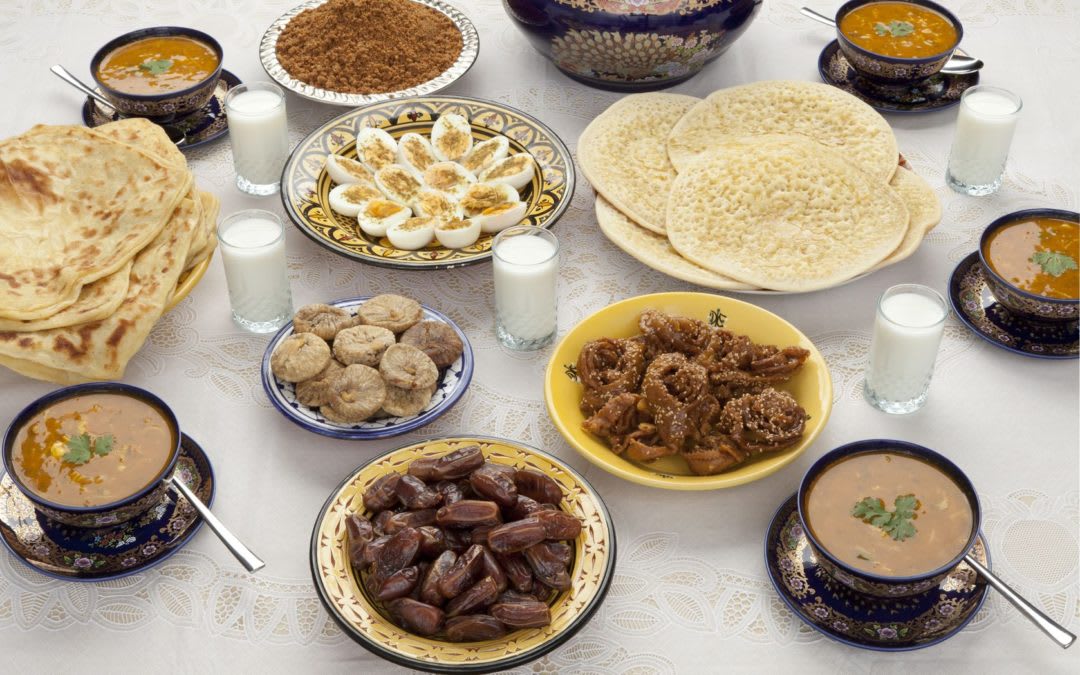The month of Ramadan is quickly approaching; in the United States, it will begin Friday May 26, and it will end Sunday June 25. This is the most holy month in the Islamic faith, and a time that is characterized by fasting, prayer, and reading of the Quran, as much as it is with the togetherness of family and friends, and also in generosity and giving.
The miracle of the blessed fruit
 Dates have long been considered a blessed fruit in Islamic faith, as they give long-lasting sustenance through the daylight hours, and will replenish the blood sugar after a day of fasting. During the daytime, the faithful abstain from food, water, smoking and sexual activity. Each day throughout the month, one meal is taken before dawn (called suhoor), and one after sunset (called iftar). Iftar brings family and friends together to break their fast, which usually begins by eating dates.
Dates have long been considered a blessed fruit in Islamic faith, as they give long-lasting sustenance through the daylight hours, and will replenish the blood sugar after a day of fasting. During the daytime, the faithful abstain from food, water, smoking and sexual activity. Each day throughout the month, one meal is taken before dawn (called suhoor), and one after sunset (called iftar). Iftar brings family and friends together to break their fast, which usually begins by eating dates.
The practical and nutritional value of dates is easy to understand: they are packed with nutrients, and natural sugars, as well as magnesium, calcium, potassium, and fiber to regulate the body’s systems. Dates digest slowly in the system, providing long-lasting satiation from hunger – making them perfect for suhoor. They also replenish energy reserves after the fast, helping the body to revitalize.
Muhammed’s love of dates
 Dates are also the food Muhammed ate when he broke his fast, making them a symbolic part of the Ramadan ritual. He believed and taught his followers that eating 7 dates on an empty stomach in the morning would protect them from harm throughout the day. Since it was believed that fire was a sign of wrath, he chose raw food over cooked, and dates were always preferred. He ate both dried and fresh dates, and would tend to eat odd numbers of them. He once likened date palms to the relatives of man, as they were “created with the same mud that made Adam.” He believed that when you ate dates, the power of the fruit was transferred to the person, infusing body and spirit with their magical, restorative benefits.
Dates are also the food Muhammed ate when he broke his fast, making them a symbolic part of the Ramadan ritual. He believed and taught his followers that eating 7 dates on an empty stomach in the morning would protect them from harm throughout the day. Since it was believed that fire was a sign of wrath, he chose raw food over cooked, and dates were always preferred. He ate both dried and fresh dates, and would tend to eat odd numbers of them. He once likened date palms to the relatives of man, as they were “created with the same mud that made Adam.” He believed that when you ate dates, the power of the fruit was transferred to the person, infusing body and spirit with their magical, restorative benefits.
It is perhaps because of the Prophet Muhammed’s love of dates that they hold such a prominent spot on the iftar table at Ramadan, but there is no doubt that dates were important in the Arabic culture for many more reasons.
A desert staple
Dates and date palms are one of the most important things to anybody that lives in the desert. The fruit doesn’t spoil, it is resistant to insects and blight, can be eaten fresh or dried, made into juice, or cooked into any number of delicious dishes. The wood can be used to make houses, furniture, walking sticks and other objects, and the fronds used to stuff mattresses, to make paper, for fans, or as decoration, and to thatch the rooves of their homes. The fiber from date trees were used to make rugs and baskets, and the seeds were used to make prayer beads or to feed animals. Every single part of the date palm is used for a daily purpose in some way, so it is no small surprise that it was so revered. That it has remained a staple of Ramadan, however, is definitely a testament to Muhammed’s unconditional love for them. And seriously, what’s not to love?
While we may not use our dates and date palms for all the things listed above we do use the pits/seeds in our landscaping, make homemade date soap, a cool refreshing date beer, and are using some of the fronds in our quest to turn sand into soil.
Naked Dates for Ramadan
There is simply no better way to replenish and restore than with our delicious, organic Naked Dates. Shop our store today: I mean, why wouldn’t you want the best for you and your family during Ramadan.

